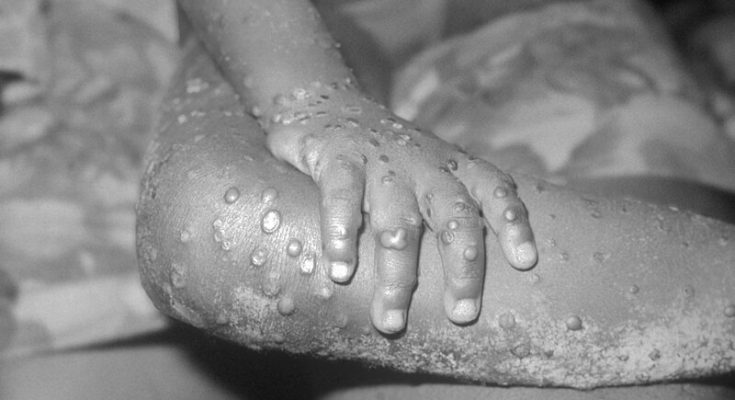The Director-General of the World Health Organization (WHO) is hereby transmitting the report of the second meeting of the International Health Regulations (2005) (IHR) Emergency Committee (Committee) regarding the upsurge of mpox 2024, held on Friday 22 November 2024, from 12:00 to 17:00 CET.
Notwithstanding some progress towards controlling the spread of mpox resulting from national and international response efforts, the Committee noted the rising number and continuing geographic spread of mpox cases, especially those due to monkeypox virus clade Ib infection; the operational challenges in the field in need of stronger national commitments; as well as the need to mount and sustain a cohesive response across countries and partners. The Committee advised that the event continues to meet the criteria of a public health emergency of international concern (PHEIC) and provided its views regarding the proposed temporary recommendations.
The WHO Deputy Director-General recalled that the determination of the public health emergency of international concern (PHEIC), on 14 August 2024, was a call for national authorities to invest energetically to prevent and control the transmission of monkeypox virus (MPXV) with particular focus on clade Ib, to reduce the risk of international spread of mpox, and for the international community to act cohesively and intensely with all the tools and resources available for the prevention and control of mpox.
Highlighting the evolution of mpox globally, the WHO Deputy Director-General stressed that, since the Committee last met in August 2024, the WHO African Region represents the largest contributor to the global increase of mpox cases due to clades Ia, Ib and IIa, mpox in the WHO Western Pacific Region has been increasing due to an MPXV clade IIb outbreak among men who have sex with men reported from Australia.
The situation has become more complex and continues to require a coordinated international response, including in all countries and especially in those with limited number of mpox cases before wider spread of disease may occur.
While the WHO African Region represents the largest contributor to the global increase of mpox cases due to clades Ia, Ib and IIa, mpox in the WHO Western Pacific Region has been increasing due to an MPXV clade IIb outbreak among men who have sex with men reported from Australia.
With regards to the spread of MPXV clade Ib in the WHO African Region, since the Committee last met, the WHO Secretariat presented that the foci of transmission are in the DRC, with clade Ib now detected in six provinces, including in the urban area of the capital Kinshasa.
MPXV clade Ib has also spread in neighbouring countries, including in Burundi (2,083 mpox cases, growing in the urban areas of Bujumbura and Gitega) and Uganda (582 mpox cases, growing in the capital Kampala) with established sustained community transmission; and Kenya (17 mpox cases) and Rwanda (37 mpox cases) with clusters of mpox cases (data reported as of 19 November 2024).
Constructive collaborations and efforts of WHO and numerous partners, including the Africa Centres for Disease Control and Prevention (Africa CDC), to scale up the response at regional, national and sub-national levels; and the establishment, by WHO and partners, of the Access and Allocation Mechanism (AAM) as part of the interim Medical Countermeasures Network endorsed by WHO Member States, to support the equitable allocation and distribution of vaccines, therapeutics and diagnostics.
The WHO Deputy Director-General outlined a number of challenges States Parties are facing to interrupt the transmission of mpox, including a number of concurrent health emergencies and competing health priorities, hence requiring political commitment and resources to further scale up targeted and integrated interventions at local levels.
Additionally, travel-related cases of MPXV clade Ib infection, mostly epidemiologically linked to the above-mentioned countries, have been detected in eight countries in the following WHO Regions – African Region (Zambia and Zimbabwe); Americas Region (United States of America); European Region (Germany, Sweden, and the United Kingdom. In the United Kingdom, transmission within the household of the case occurred); and South-East Asian Region (India and Thailand).
Available data from the sub-national level in the DRC shows that the observed dynamics of transmission of MPXV clade Ib are changing over time and are diverse across affected health zones. Since MPXV clade Ib was first detected in September 2023 in South Kivu province in the health zone of Kamituga, the most affected age group has shifted from adults, where transmission was first observed and appears to have been sustained by contact within commercial sexual networks, to younger age groups, including children, and sustained by household and likely broader community transmission through close physical contact.
The same epidemiological characteristics are being observed in the capital Kinshasa, where the outbreak is largely driven by transmission between adults, but where steadily more children are being reported as a result of close physical contact within households and/or the community. It is worth noting that, regardless of the circulating MPXV clades, adults of 50 years of age or older are less affected, likely due to the immunity conferred by prior vaccination against smallpox.
Information about mortality in confirmed cases of mpox, regardless of the MPXV clade, is limited. In the DRC, based on routine syndromic surveillance data, deaths attributed to mpox are predominant in rural areas known to be endemic for MPXV clade Ia – with variable case fatality rates observed across those areas, but being consistently higher in children under 5 years of age.
Outside the DRC, deaths associated with MPXV clade Ib infection have been reported in Burundi (1), Uganda (2) and Kenya (1).
The WHO Secretariat presented the assessed risk by MPXV clades and further expressed in terms of overall public health risk where any given clade/s is/are circulating, and risk of national and international spread.
The WHO Secretariat subsequently provided an update on actions WHO has taken, with States Parties and partners, following the issuance of the temporary recommendations on 19 August 2024, the extension of the standing recommendations for mpox, and the WHO appeal: mpox public health emergency 2024, and based on the WHO Mpox global strategic preparedness and response plan, September 2024-February 2025; the Africa CDC-WHO Mpox Continental Preparedness and Response Plan for Africa, September 2024-February 2025; A coordinated research roadmap – Mpox virus – Immediate research next steps to contribute to control the outbreak (2024).
Representatives of Burundi, the DRC, Kenya, Rwanda and Uganda updated the Committee on the mpox epidemiological situation in their countries and their current response efforts, needs and challenges. Mpox vaccine is currently being used in the DRC and Rwanda, and there are plans to use it in Kenya and Uganda, whereas vaccination against mpox is currently not encompassed by the response strategy of Burundi.
However, the lack of information at national and local levels, including the suboptimal implementation of response interventions, was regarded as an obstacle to progress in controlling and interrupting MPXV transmission.





